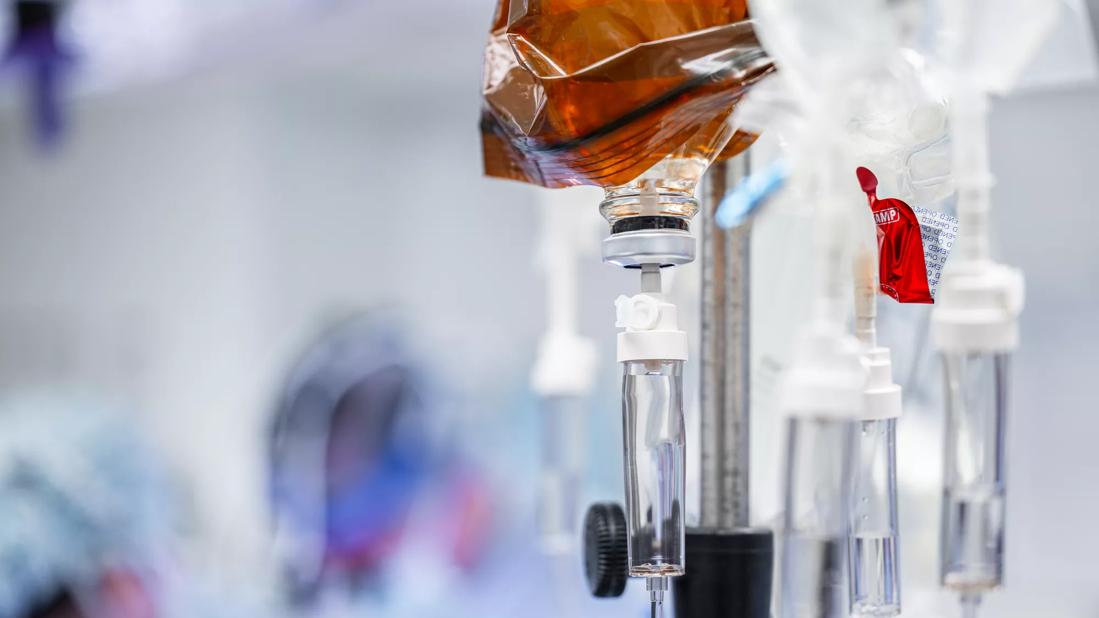A deep dive into survival differences between pediatric and adolescent/young adult leukemia patients

A study published in the January 2021 issue of Blood Advances found that a pediatric chemotherapy regimen was effective and well tolerated by adolescents and young adults (AYAs) with acute lymphoblastic leukemia (ALL) up to 40 years of age. The study analyzed the toxicity events reported in the previous CALGB 10403 study published in Blood and compared them with those observed in AYAs of the Children’s Oncology Group (COG) AALL0232 study.
Advertisement
Cleveland Clinic is a non-profit academic medical center. Advertising on our site helps support our mission. We do not endorse non-Cleveland Clinic products or services. Policy
“The CALGB 10403 treatment arm was one arm of the COG AALL02332 regimen with some minor modifications,” explains Cleveland Clinic medical oncologist Anjali Advani, MD, first author of the study. “So, really, the question was looking at age-related changes and toxicities using a pediatric-based regimen.” The main change in the treatment arms from these two studies, she adds, was the lack of a second interim maintenance. The CALBG 10403 study was an adult U.S. intergroup trail and included patients up to 40 years of age.
In explaining the motivation behind this research, Cleveland Clinic pediatric oncologist Stefanie Thomas, MD, says that the oncology community has been puzzled for a while by the decreased improvements in survival in patients with ALL between the ages of 15 and 39 compared with younger children. At the same time, improved survival has been reported in AYAs who were treated on the pediatric leukemia regimen compared with those treated on the traditional adult regimen.
“These protocols have already been used for many years in the Children’s Oncology Group,” she says and adds that this research brought the adult and pediatric cooperative groups together to investigate the efficacy and safety of the pediatric regimen in AYAs.
Initially, the investigators thought that the survival improvement seen in pediatric patients wasn’t just because of the chemotherapy regimen, but because of inherent differences in the way pediatric oncologists treat young adults versus the way adult oncologists treat young adults. However, the CALGB 10403 study published earlier in Blood disproved this theory.
Advertisement
“It showed that you can still get these great outcomes no matter where you’re treated, if you’re treated on an appropriate regimen, which is more of a pediatric-inspired regimen,” says Dr. Thomas. “This work really completely changed the recommendations on how to treat young adults with leukemia, with the pediatric-inspired regimen now being considered the standard of care.”
This study aimed to take a deeper look into the toxicities of the pediatric-inspired regimen in AYAs and to assess the overall tolerability of the regimen, as well as the feasibility of extending it to this older population.
“The main take home point of this article is that that it was feasible and safe, and while there were some increased toxicities during induction, in general, the regimen was quite well tolerated,” says Dr. Advani. Hyperglycemia, increased bilirubin, increased liver function and incidence of febrile neutropenia were more common during induction in this older group of ALL patients, she adds, but the differences diminished as patients continued on the treatment.
“During the post-remission treatment, there were also some issues with increased liver function tests, pancreatitis, bilirubin, fibrinogen and blood clots but those were generally manageable,” she says. “But there was no statistically significant difference in the mortality rate between this trial and the COG AALL0232.”
Dr. Advani explains that the CALGB 10403 study published earlier in Blood suggested that the pediatric regimen may be suitable for AYAs, but that this latest analysis of toxicities further established the safety of the regimen in the older ALL population.
Advertisement
A somewhat unexpected finding was that only 39% of patients in the CALGB study completed all planned protocol treatment. In the COG AALL02332 trial 57% of patients older than or equal to 18 years of age completed treatment, compared to 74% of patients younger than 18 years who completed treatment. Although the reasons behind the differing rates of treatment completion were not thoroughly examined, the authors hypothesize that factors associated with patient age and treating physician may be at play.
“During this time (the 20s and 30s) insurance changes and employment changes happen frequently, so providing and improving social support where patients are treated is going to be the biggest game changer and should improve outcomes,” says Dr. Thomas. “We have specific AYA resources that are available through our AYA programs, including new virtual support groups to support the population during COVID-19. We are happy to support AYAs on both the pediatric and adult sides.”
Advertisement
Advertisement

Combining advanced imaging with targeted therapy in prostate cancer and neuroendocrine tumors

Early results show strong clinical benefit rates

The shifting role of cell therapy and steroids in the relapsed/refractory setting

Radiation therapy helped shrink hand nodules and improve functionality

Standard of care is linked to better outcomes, but disease recurrence and other risk factors often drive alternative approaches

Phase 1 study demonstrates immune response in three quarters of patients with triple-negative breast cancer

Multidisciplinary teams bring pathological and clinical expertise

Genetic variants exist irrespective of family history or other contributing factors